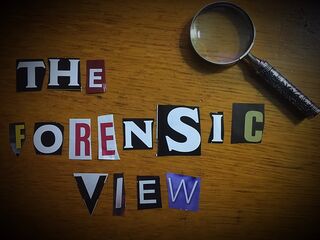Stress
Ancient Fears: Acute and Chronic Stress Responses
Our poor response to chronic stress may be rooted in our remote ancestry.
Posted November 21, 2022 Reviewed by Davia Sills
Key points
- Human beings respond more poorly to chronic stress than to acute, short-term stressors.
- The patterns of stress faced by our ancient ancestors may provide a powerful explanation, both inside and outside the criminal justice system.
- Psychological intervention and awareness may help to bridge the gap between beneficial and deleterious responses to chronic stress.

Acute stress can be devastating. A single instance of extraordinary stress can sometimes produce PTSD (APA, 2022). Acute, relatively short-term stresses are nothing to take lightly, especially when they are extremely severe.
However, chronic stress, or stress over extended periods, is generally far worse for us. Chronic stress is an occupational hazard for law enforcement officers, firefighters, and other first responders, and it can result in major digestive problems, immune response reduction, dangerous cardiovascular conditions, and other potentially devastating outcomes (e.g., Sharps, 2022). But why is this? Since chronic stress is an inevitable concomitant of life, why are our bodies and minds so inadequately prepared to deal with it?
Many readers of Psychology Today are familiar with the human fight-or-flight response. This is our physiological response to major stressors, mediated by the activity of the hypothalamus, the pituitary gland, and the adrenal glands. This stress response, both acute and chronic, involves enhanced breathing and heart rates, vasodilation of many blood vessels, and reduction of bloodborne resources to some brain centers, especially to the prefrontal cortex, the seat of much of our thinking. Under stress, we simply aren't going to be as bright as we normally are.
The fight-or-flight response can be devastating. So why, from the standpoint of biological psychology, is this response tolerated in our bodies?
The answer is relatively straightforward. The human fight-or-flight response gives us greater endurance and greater physical strength: attributes necessary to fight or flee from danger. It's a trade-off; the downsides of the fight-or-flight response are unfortunate, but they are biologically and psychologically tolerated in the service of survival.
But why is chronic stress so much worse for us than acute stress?
Enhanced abilities to fight or run away were of great use in the ancient world. If you were dealing with a sabertoothed tiger or a Cro-Magnon with a club, running or fighting were among your best bets. But in the modern world, outside of crime scenes, warfare, and some other situations confronted by law enforcement, firefighters, and other first responders, these supercharged responses are not exactly optimal. Running like hell from a stressful corporate meeting is unlikely to result in a promotion. In court, beating an opposing lawyer on the head with your copy of Blackstone is unlikely to sway the case in your favor. The modern world has put limits on the effectuality of the fight-or-flight response that our ancestors never dreamed of.
Modern psychology, quite correctly, generally focuses on our behavior today in the modern world. However, it is important to realize that our modern psychology has its roots in our evolutionary past. We find, for example, that we, as modern people, carry with us endogenous abilities to learn animal tracks with great efficiency and even to avoid serial killers based on non-verbal cues that are apparently present in their eyes (Sharps et al., 2002, 2019).
So, our minds developed partly in the ancient world, the world of ice, mammoths, and sabertoothed cats. In that world, our hunter-gatherer ancestors experienced stress, of course, and some of it was certainly chronic or long-term. However, many important stresses in their world tended to be acute—finished in a few minutes, hours, or days at most. The wild 30 seconds of spearing a large animal, or even the two days of trailing it through a savannah infested with African wild dogs—the stress was frequently intense, but it was often short-term.
These acute, short-term stressors were first encountered by our ancestors when they were young, still in their reproductive years. These young people had to be prepared to deal with acute stressors; teenagers who had to fight a short-faced bear with a spear or who were suddenly faced with a spitting cobra hiding in a berry bush had to respond appropriately. If they could not, they did not survive their reproductive years, and in view of the very early ages at which ancient people assumed adult responsibilities, they might not even enter those years.
Any psychological or physiological attribute supported by our genes was passed down to us by our ancestors during their reproductive years. If that specific attribute was so horrible that it killed them before they reproduced, it simply didn't come down to us. This is probably a major reason for our relatively strong abilities to respond to most acute stresses. Our ancestors had to be relatively good at dealing with acute stressors during their reproductive years, and as a result, they passed those abilities down to us.
However, chronic stress, or stress over the long term, doesn’t usually kill us when we’re young enough to breed. The medical conditions that it engenders generally kill us in later life after we are no longer capable of reproduction; relevant coping capacities, therefore, had less chance of entering our modern genome.
This is, of course, theoretical; without a time machine, we can't prove it. But the fact remains that we apparently never really adapted well to chronic stress. The stress of 20 years on the street in law enforcement, or of 20 years fighting wildland fires, or of a 20-year bad marriage followed by two years of divorce proceedings—these chronic stressors, like those of the distant past, tend to carry us off long after our typical reproductive periods end.
There are other possible reasons for our failure to adapt well to chronic stress, of course. But the fact is that we're not very good at dealing with it. This highlights the critical need for psychological awareness and proper psychological care when we experience chronic stress.
Law enforcement, firefighters, other first responders, and military personnel frequently encounter harsh chronic stress; the rest of us, typically less spectacularly, encounter it as well. Yet modern psychological technologies can help us to deal with chronic stress. Scientifically-minded psychologists can be of enormous help here, as can a solid understanding of the relevant psychology on the part of anyone suffering from acute or chronic stress. Such understanding can be the key to successful coping and recovery.
References
American Psychiatric Association (2022). Diagnostic and Statistical Manual-5-TR. Washington, DC: American Psychiatric Association.
Sharps, M.J. (2022). Processing Under Pressure: Stress, Memory, and Decision-Making in Law Enforcement (3rd ed.). Flushing, NY: Looseleaf Law.
Sharps, M.J., & Herrera, M.R. (2019). The eyes really do have it: Attribution of character in the eyes of killers. Journal of Police and Criminal Psychology, 34, 105-108.
Sharps, M.J., Villegas, A.B., Nunes, M.A., & Barber, T.L. (2002). Memory for animal tracks: A possible cognitive artifact of human evolution. Journal of Psychology, 136, 469‐492.




